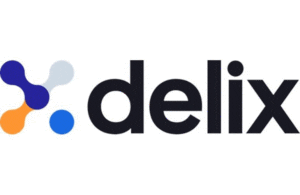 Biotech startup Delix Therapeutics has unveiled promising interim phase 1 safety data for its lead neuroplasticity drug candidate DLX-001 at a leading neuroscience conference, marking the first clinical validation of its “psychoplastogen” pipeline. In essence, the company is developing psychedelic-inspired therapies that can prompt neuroplasticity without the hallucinogenic, psychotomimetic, or dissociative effects typical with traditional psychedelic compounds.
Biotech startup Delix Therapeutics has unveiled promising interim phase 1 safety data for its lead neuroplasticity drug candidate DLX-001 at a leading neuroscience conference, marking the first clinical validation of its “psychoplastogen” pipeline. In essence, the company is developing psychedelic-inspired therapies that can prompt neuroplasticity without the hallucinogenic, psychotomimetic, or dissociative effects typical with traditional psychedelic compounds.
According to Delix’s chief medical officer Dr. Aaron Koenig, DLX-001 is safe and well-tolerated. With neuroplasticity emerging as a key factor in rapid-acting antidepressant mechanisms, the company is optimistic about this early human proof-of-concept, which could pave the way for larger efficacy studies and offer an alternative approach in the field where psychedelic medicines have shown limitations, particularly in terms of side effects and potential cardiac liability.
The interim data from the phase 1 study involving 100 healthy volunteers found that DLX-001 was well-tolerated and did not induce any serious adverse events. Additionally, it showed no signs of psychotomimetic, hallucinatory, or dissociative effects. The study also revealed DLX-001’s oral bioavailability, its ability to achieve therapeutic plasma concentrations, and its presence in the cerebrospinal fluid (CSF), indicating its central nervous system penetration.
The company announced the launch of the study in May.
Early confirmation for screening approach
Reflecting on the interim findings, Koenig emphasized the initial results affirm the effectiveness of its screening processes for predicting behavioral effects, such as rapid antidepressant impacts and the ability to stimulate neuroplasticity. The research has also helped the firm determine that DLX-001 was not likely to have hallucinogenicity. The interim data therefore provides a validation that “the preclinical assays are correct.”
Additionally, classic serotonergic hallucinogens may pose cardiac side effects with prolonged use owing to their agonism at the serotonin 5-HT2B receptor, while the serotonin 5-HT2A receptor is more associated with their hallucinogenic effects. “The 5-HT2B receptor is associated with cardiac liability, and while we don’t know how prevalent it is, even if it’s a rare event, it is potentially catastrophic.” The preclinical and interim clinical data thus far confirm that DLX-001, which doesn’t target the 5-HT2B receptor, demonstrates a solid safety profile in this regard. Definitely, the drug does not have that cardiac liability,” Koenig noted, adding that EKGs and vital signs from clinical trial participants have been normal.
Amidst a surge in interest in psychedelic therapy, considerable unmet need remains
A handful of other companies are aiming for FDA approval of compounds such as psilocybin and its derivatives, as well as MDMA, for the treatment of various mood disorders. In addition, the rapid proliferation of ketamine clinics in the U.S. has more recently been followed by a wave of ketamine clinics recently closing up shop, underscoring the challenges psychedelic medicine providers face operationally and financially. At the same time, rates of depression and anxiety in the U.S. have surged since the onset of the COVID-19 pandemic.
Given the considerable unmet need, psychedelic therapies, broadly defined, have not gained as much traction as the initial hype suggested. For one thing, insurers are unlikely to cover them. And while the FDA approved Spravato (esketamine) in 2019, its use has been limited to a degree because of the stringent Risk Evaluation and Mitigation Strategy (REMS) program, which requires administration in a certified medical facility under healthcare professional supervision. “The number of people it can help is limited because patients have to come and sit in the clinic for several hours,” Koenig said. “The medical system isn’t set up to facilitate that.”
While there are “exciting study results for these classical psychedelics,” Koenig projects that the companies developing such therapies will “continue to fall short in terms of actually reaching patients, which I think is the ultimate goal — even if it becomes more mainstream.”
Related developments
In other news, Delix recently received a $320,000 grant from the National Institute on Drug Abuse (NIDA) to develop DLX-007, a non-hallucinogenic analog of ibogaine for treating substance use disorders.
Researchers have explored ibogaine as a treatment for addiction, but its status as a Schedule I substance in the U.S., along with its cardiotoxicity and hallucinogenic effects, have constrained its use. DLX-007 aims to overcome these barriers as a safer, more accessible treatment option. This grant builds on ongoing collaboration with NIDA’s Addiction Treatment Discovery Program (ATDP) to discover therapies for substance use disorders.
Next steps
As for future plans, Koenig notes that the phase 1 trial of DLX-001 is about halfway complete. “It will be finished at the beginning of the first quarter of next year,” he said. “What we have now is enough information to start the real planning for our phase 2 trial. The phase 2 study will involve patients with major depression, and Delix plans to start it in the middle to latter part of 2024. FDA’s preliminary guidance for psychedelics makes accommodations for drugs that can’t adhere to a typical drug development pathway. “But, our compounds are non-hallucinatory and non-dissociative, so we can run placebo-controlled studies,” Koenig said. “We’re progressing along a typical drug development trajectory.”
Filed Under: clinical trials, Drug Discovery, Psychiatric/psychotropic drugs



